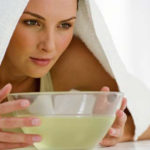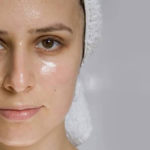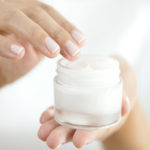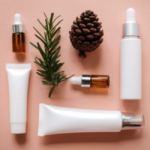Cleansing your face and removing your makeup are essential steps, just as important as using serums, moisturizers, or face masks. However, not everyone knows how to properly cleanse and remove makeup. You may be repeating some serious mistakes in your skincare routine, causing significant damage to your skin.
Not using a facial cleanser after removing your makeup
This is a basic mistake that many people make. No matter how good the makeup remover solution is, it is not enough to thoroughly cleanse your skin. You need to use a facial cleanser and water to completely remove all traces of makeup, excess oil, and bacteria. If it’s in the evening and you’ve returned home, make sure to cleanse your face properly to avoid further skin deterioration.

Ensure to follow a proper cleansing routine in the evening to prevent skin deterioration.
Using too much facial cleanser
Using an excessive amount of facial cleanser is not a good idea. It can lead to over-exfoliation and potential skin damage. Additionally, if the cleanser is not rinsed off properly, it can clog pores. It is recommended to use a moderate amount of cleanser, wet your skin, and add water to create a lather if needed, instead of using too much or applying it directly to dry skin.
Exfoliating without properly cleansing your face first
While cleansing and removing makeup help deep clean your skin and pores, exfoliation removes useless skin cells from the surface, making way for new cell growth. Exfoliation should be done on a properly cleansed face, either dry or wet, depending on the product you choose and the manufacturer’s instructions. Limit exfoliation to a maximum of once or twice a week.

You may be making serious mistakes in your skincare routine, causing significant skin damage.
Neglecting important areas
Don’t just focus on your forehead, nose, chin, and cheeks when cleansing your face. The skin around your ears, neck, and back of your neck also come into contact with skincare products and sunscreen, and if not properly cleansed, can lead to clogged pores and acne. Make sure to remove your makeup and cleanse these areas as well, ensuring that all parts of your skin are clean and free of blemishes, deeply cleansed from the inside out.
How to Properly Take Care of Oily Facial Skin: 7 Reasons Why it is Oily
The hot weather can take a toll on your oily skin, potentially leading to acne, aging, darkening and greasiness. To protect your skin, it is important to practice proper skin care and keep your sebum production under control in order to reduce the risk of acne during dry, hot weather.





































